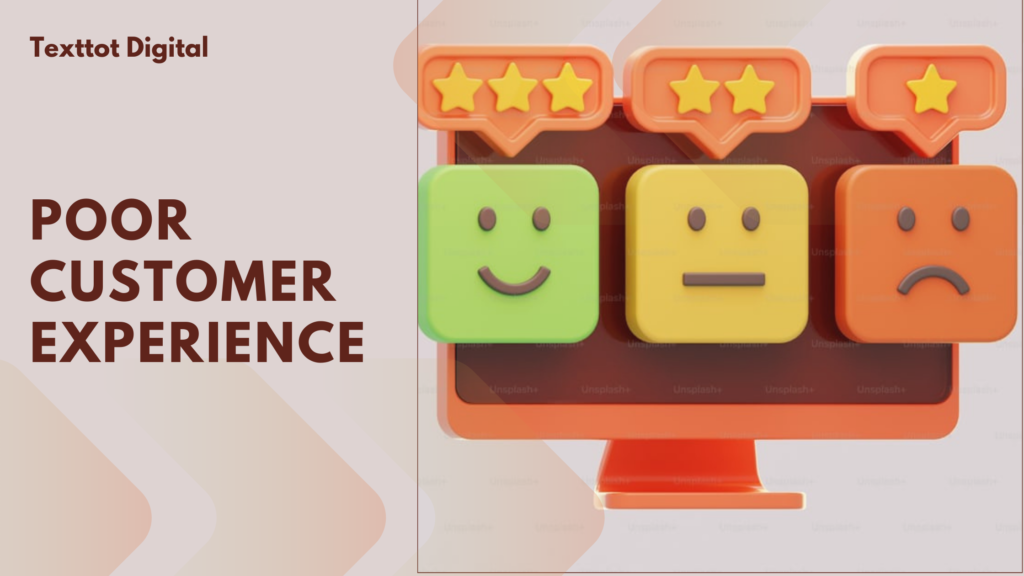Why Most Businesses Fail Within their First Year

Did you know that 20% of new businesses fail within their first year? That’s one in five businesses shutting down before they even get a chance to grow. And this number only gets worse over time because, by the fifth year, nearly 50% of startups are no longer in operation.
But, why are there so many business failures? Some of the most common reasons are poor market research, ineffective marketing, financial mismanagement, and one of the biggest yet most overlooked mistakes, a bad website.
Your business website is the first interface potential customers have with your business before they decide whether they want to engage with your brand or move on to a competitor. If you have a poorly designed, slow, or outdated business website, that’ll instantly drive potential customers away and make it harder for your business to grow.
So, if you are a business owner or an aspiring one, read through this post as we breakdown why most businesses fail and how you can help your business survive and thrive through tough times.
Table of Contents
Poor Market Research

One of the biggest reasons why most businesses fail within their first year is a lack of proper market research. In fact, 23% of organizations don’t have a clear market research strategy.
Conducting solid market research allows you to identify your target audience and analyze and understand what pricing and marketing strategies will work best. It also helps you predict trends, so you can position yourself ahead of the curve instead of scrambling to keep up.
But, many business owners assume that because they’re passionate about an idea, others will be too. They invest money and effort into launching their business, only to realize that there’s little to no demand for what they’re offering.
To avoid this pitfall, take the time to validate your idea. Start by analyzing search trends using tools like Google Trends or SEMrush to see if people are actively looking for what you offer. Then, survey potential customers to gather feedback about their preferences, test a simplified version of your product or service to see how people respond, and study your competitors to see what they are doing well and where they fall short.
Weak Online Presence And A Bad Website

It goes without saying that websites can impact business failures as they are often the first impression potential customers have of your business. A weak online presence or a poorly designed website affects how customers perceive your brand as it takes only 0.05 seconds for users to form an opinion about your website.
Some common website mistakes, such as slow loading, difficult navigation, poor design, and lack of a clear call-to-action, will make your visitors leave within seconds, likely never to return. These mistakes directly impact your conversions, search rankings, and overall business growth. In fact, if your competitors have a faster, more user-friendly website, your customers will naturally choose them over you.
However, the solution to improving your online presence is as simple as investing in professional website design and SEO. Our team of experts at Texttot Digital are experts at building a well-optimized website that is easily discoverable by potential customers. That way, your business website will drive organic traffic and increase your brand visibility.
Ineffective Marketing Strategy

As a business owner, you need a solid marketing strategy to attract, engage, and convert customers. Relying entirely on word-of-mouth and traditional marketing methods can still play a role, but they are no longer enough to sustain a business in today’s digital world.
Nowadays, one of the biggest mistakes you can make as a business owner that is a major cause of business failures is failing to leverage digital marketing. Most of your customers are online, and when you have a well-optimized digital presence either through your business website, your social media platforms, or a combination of both, you can reach them.
Creating a modern marketing strategy is easy but consistency makes it effective. To increase your brand awareness and reach a wider audience, start by identifying where your target customers spend their time online and create a marketing plan that includes SEO, content marketing, social media engagement, and paid advertising. That way, you drive organic traffic to your business which converts into more sales for you.
Financial Mismanagement

If you own a business and you find yourself stretching your finances to cover costs, maybe your business never got off the ground in the first place. Running out of money is one of the top reasons 82% of small businesses shut down within their first year. Many entrepreneurs underestimate expenses, overestimate revenue, and fail to track their cash flow properly.
When you focus only on the obvious expenses, such as rent, inventory, or employee salaries, and overlook hidden costs like marketing, taxes, software subscriptions, and unexpected emergencies, your business may start struggling financially. Also, relying on overly optimistic sales projections can lead to overspending, and lastly, not having a solid pricing model causes thin profit margins.
Having said that, if you don’t want your business to fall victim to financial mismanagement, you should track your cash flow carefully. Keep a close eye on your income and expenses, ensure there’s enough money to cover operational costs and plan for unexpected downturns. Also, work with financial experts who can help with budgeting, tax planning, and long-term financial strategies.
Lack of a Clear Business Plan

Did you know that approximately 70% of businesses that survive for 5 years follow a strategic business plan? That is why a business plan is the foundation of any successful business. It outlines what your business does, who your target audience is, how you plan to reach them, and how you’ll sustain and grow your company.
The best part about having a solid business plan is that it helps secure funding for your business. Investors and lenders want to see a structured plan before they put money into a business. Additionally, it prepares you for challenges. A strong business plan includes contingency strategies, helping you navigate difficulties instead of reacting in panic.
Once you create your business plan, don’t change it; just follow it through, except if you find out certain analyses are incorrect. Even when you find out how to fix the errors, make sure you stick to the new plan and continue with it, rather than changing your entire business plan based on quick intangible observations.
Poor Customer Experience

In managing a business, your customer support service is just as important as the product you sell or the service you provide. According to Emplifi, 86% of consumers would leave after as few as two poor experiences, won’t come back and most likely won’t recommend it to others.
People expect quick, efficient, and friendly service when they reach out, whether it’s through email, social media, or live chat. Also, if buyers don’t fully understand your policies before making a purchase, they may feel misled, dissatisfied, and completely lose trust in your brand.
In order to improve your customer experience, you must prioritize your customer satisfaction at every time. This means providing helpful support to customers’ inquiries, engaging with them through personalized communication and acting on feedback, appreciating your customers through loyalty programs, and having transparent policies on returns, refunds, and pricing.
Expanding Too Fast

Growth is every business owner’s goal, but expanding too quickly can be synonymous with not growing at all. That is why you treat your expansion or diversification like you’re just starting again. If not, you’ll stretch your resources thin and find yourself managing too many moving parts at once, leading to operational inefficiencies and a decline in quality.
Expansion undoubtedly requires good research, strategy, and planning. So, if you’re sure that your business is established and you must expand, find out about the demand for your business in the new location, understand your new product or service, and be financially or operationally ready to fly, just as you do with your current successful business.
Conclusion
Starting and growing a business requires careful planning and execution. But many companies fail within their first year due to some, or a combination of the mistakes that we’ve talked about earlier.
However, implementing effective marketing strategies tailored to your target audience can drive engagement and boost sales. Also, leveraging digital marketing tools and techniques allows you to reach a broader audience and build lasting relationships with your customers.
But an important part of your business success is a very strong online presence. Investing in professional website development and well-optimized marketing strategies ensures that your business stands out, attracts the right audience, and converts visitors into paying customers.
Don’t let a bad website stop your business. Reach out to us at Texttot Digital and let our team of experts provide you with guidance and handle your website optimization to enhance user experience and improve your search engine ranking while you focus on running your business.
Affiliate Disclosure
Some of the links on Texttot.com may be affiliate links. This means we may earn a small commission if you make a purchase through these links, at no extra cost to you. We only recommend products and services we trust and believe add value to our audience.